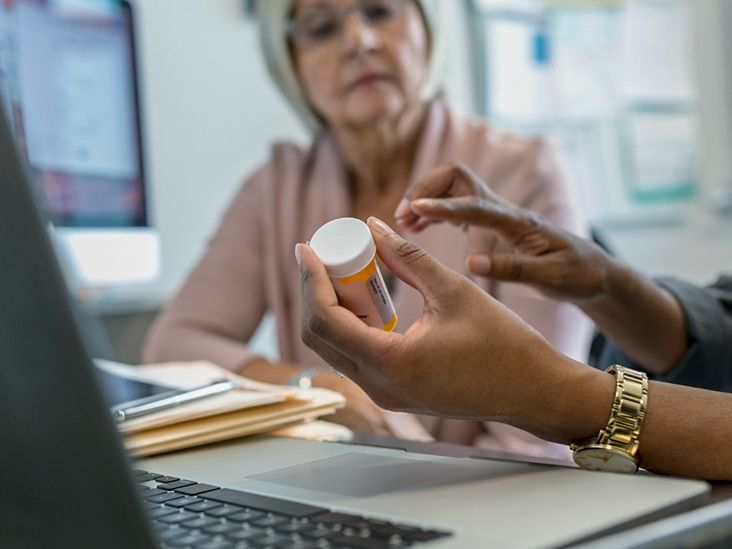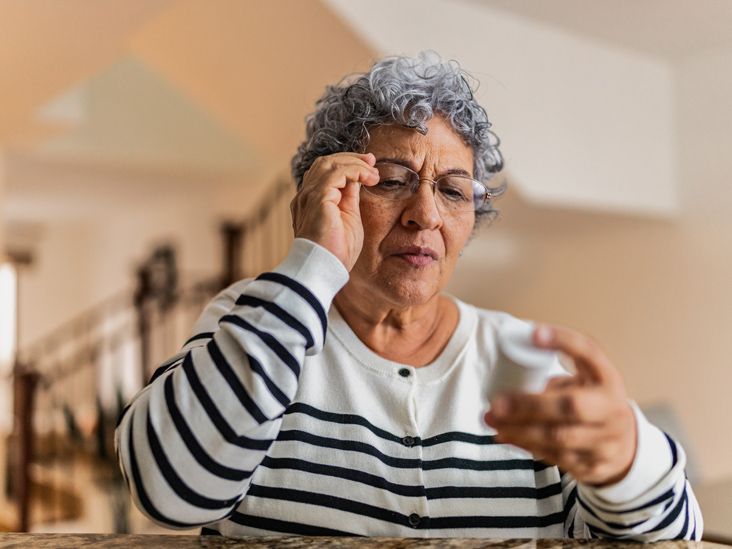Your healthcare team can best advise you on different medications and supplements that may help lower cholesterol levels, from statins to PCSK9 inhibitors to natural remedies like garlic and red yeast rice.
Cholesterol is a fat found in your blood. It’s produced by your liver and found in foods from animal sources, such as meat, poultry, and full fat dairy products.
Your body needs some cholesterol to ensure organs grow and function properly. However, too much cholesterol in the blood can clog the arteries and lead to severe health conditions.
The type of medication you take may depend on your specific cholesterol needs, which you discuss with your doctor and healthcare team. This may involve both “good” HDL cholesterol and “bad” LDL cholesterol, and that may dictate what medication you might need.
Making health-promoting eating choices and increasing exercise are usually the first steps in improving your cholesterol levels. But those changes alone may not be enough, and your doctor may recommend using medications to lower your cholesterol.
Statins are the most commonly prescribed cholesterol medications. They decrease the production of cholesterol in the liver, which helps your body remove excess cholesterol from your blood.
In general, statins are very effective at lowering LDL cholesterol levels. These medications have been shown to
Examples of statins include:
- atorvastatin (Lipitor)
- fluvastatin (Lescol)
- lovastatin (Altoprev, Mevacor)
- pitavastatin (Livalo)
- pravastatin (Pravachol)
- rosuvastatin (Crestor)
- simvastatin (Zocor)
Statins can also be found in medications that combine other cholesterol-lowering drugs for additional benefits. These include:
- simvastatin with ezetimibe (Vytorin)
- atorvastatin with amlodipine (Caduet)
Side effects
Side effects of statins may include:
- muscle pain
- weakness
- constipation
- diarrhea
- nausea
- dizziness
- gas
- headache
- upset stomach
Severe side effects are rare. They can include:
- muscle damage
- liver damage
- new-onset type 2 diabetes
Risks
If you have liver disease or damage, your doctor may recommend a lower dose of statins or prescribe a different cholesterol medication.
According to the
Bile acid sequestrants help your body dispose of LDL cholesterol. They’re usually used in combination with statins.
Your body uses cholesterol to create bile, which is needed to digest food. Bile acid sequestrants bind to bile and prevent it from being used for digestion.
Your body responds by making even more bile, which requires taking cholesterol from the blood. The more bile you make, the more cholesterol your body uses. This lowers the amount of cholesterol in your bloodstream.
Examples of bile acid sequestrants include:
- cholestyramine (Locholest, Prevalite, and Questran)
- colesevelam (Welchol)
- colestipol (Colestid)
Side effects
Side effects may include:
- constipation
- gas
- indigestion
- hemorrhoids
Risks
People with gallbladder or other gastrointestinal problems should avoid using these medications. Those with high triglycerides should also avoid bile acid sequestrants.
Bile acid sequestrants can make it more difficult for your body to absorb certain vitamins, especially vitamins A, D, E, and K. These vitamins need bile to absorb properly, and since bile acid sequestrants remove bile, they may lower your vitamin levels over time.
If you have been taking these medications for a long time, your doctor may check your vitamin levels and recommend supplements if they see a need.
Cholesterol absorption inhibitors help lower LDL cholesterol by preventing its absorption by the intestines. They appear to have a modest effect on boosting HDL (“good”) cholesterol as well.
Ezetimibe (Zetia) is the first available treatment from this class of drugs. According to the
Ezetimibe can be used to lower cholesterol in combination with statins. It can also be taken on its own for
Side effects
Side effects may include:
- stomach pain
- gas
- diarrhea
- fatigue
Risks
In rare cases, ezetimibe may cause problems with your muscles, liver, or pancreas.
People with liver disease shouldn’t take this medication. If you develop yellowed skin or whites of the eyes, known as jaundice, or other symptoms of liver problems, it’s important to contact your doctor immediately.
Prescription-strength niacin, also known as vitamin B3, may help improve cholesterol by boosting HDL and lowering LDL and triglyceride levels. It may raise HDL levels by
Although you can buy niacin without a prescription, over-the-counter (OTC) doses aren’t effective in treating high cholesterol. Due to side effects, niacin is now usually reserved for those who can’t tolerate statin therapy.
Examples of prescription-strength niacin include:
- Niacor
- Niaspan
- Slo-Niacin
Side effects
Side effects may include:
- skin flushing
- fatigue
- nausea
- abdominal pain
- heartburn
- blurred vision
- dizziness
- low blood pressure
Risks
Liver damage is possible when taking prescription-strength niacin.
Niacin isn’t usually recommended for people with particular health issues. It may not be suitable for gastrointestinal issues because it can cause ulcers. In addition, people with diabetes should avoid taking niacin, as the medication may increase blood sugar levels.
PCSK9 inhibitors are monoclonal antibodies, a type of biologic drug. Two medications of this type are available in the United States:
- alirocumab (Praluent)
- evolocumab (Repatha)
Both are medications that need to be injected every 2 to 4 weeks.
They help lower cholesterol by inactivating a protein that usually prevents your body from clearing cholesterol from your blood. When the protein is inactivated, your liver can remove more cholesterol. As a result, cholesterol levels drop.
Because these medications are very expensive, they’re usually considered when other treatments are not lowering cholesterol enough.
Side effects
PCSK9 inhibitors can also cause side effects in some people, including:
- bruising or discomfort at the injection site
- the common cold
A small number of people have reported cognitive issues while taking these drugs, but it’s not yet clear whether there’s a connection.
Risks
In rare cases, some people may have allergic reactions to PCSK9 inhibitors.
Those with a latex allergy may need to take extra caution when using evolocumab.
ACL inhibitors work by blocking an enzyme that your liver usually needs to make cholesterol. When your liver produces less cholesterol, it removes more cholesterol from your blood.
Bempedoic acid (Nexletol), approved in
ACL inhibitors are usually taken alongside other medications to help lower cholesterol more effectively. They may also be used by people who are unable to take statins.
In fact,
Side effects
Side effects may include:
- increased uric acid levels, which can lead to gout
- decreased kidney function, as measured in kidney function tests
Risks
In clinical trials, some people had abnormal blood test results, such as decreased platelets, leukocytes, or hemoglobin.
You may be at higher risk of rupturing a tendon while taking ACL inhibitors, so those with a history of tendon ruptures should avoid this drug class.
Familial hypercholesterolemia is an inherited condition that causes high cholesterol. Those with this condition are usually prescribed statins, ezetimibe, and additional medications to effectively lower their cholesterol.
Medications to treat this condition include:
- lomitapide (Juxtapid)
- evinacumab (Evkeeza)
In addition, the FDA approved a new medication called inclisiran (Leqvio)in 2021. It’s also approved to treat atherosclerotic cardiovascular disease (ASCVD).
Side effects
Each medication may result in different side effects. For example:
- lomitapide commonly causes gastrointestinal problems such as diarrhea, nausea, and vomiting
- incliseran may cause pain at the injection site or in the limbs, joint stiffness, urinary tract infection, diarrhea, and lung and breathing problems
Risks
Each medication has different risks. For example:
- lomitapide can cause liver toxicity, so regular liver function tests are required while taking this drug
- evinacumab can cause anaphylaxis, a life threatening allergic reaction, and can harm the fetus during pregnancy
If you’re pregnant or planning to become pregnant, are nursing, or have other health conditions, it’s always best to talk with a doctor to determine which medications are safe for you to use.
Fibrates are mainly used to lower triglycerides but can also lower LDL slightly. Examples of fibrates include:
- clofibrate (Atromid-S)
- gemfibrozil (Lopid)
- fenofibrate (Antara, Lofibra, and Triglide)
Side effects
Side effects may include:
- constipation
- diarrhea
- dizziness
- headache
- stomach pain
- back pain
Risks
Fibrates can affect liver functioning. People with kidney problems, gallbladder disease, or liver disease shouldn’t use fibrates. They are also not recommended for those who are pregnant or nursing.
When taken with statins, fibrates may increase the chance of muscle problems.
Prescription-strength omega-3 fatty acids can be used to treat very high blood triglycerides (above
Prescription options include:
- Lovaza
- Vascepa
- Epanova
- Omtryg
Side effects
Side effects may include:
- fishy taste in the mouth
- burping
- joint stiffness
- upset stomach
- diarrhea
Risks
Omega-3s can increase the risk of bleeding, so they aren’t recommended for those taking blood thinners. High doses of omega-3s can also affect immune function.
Prescription omega-3s are usually sourced from fish. If you have a seafood allergy, talk with a doctor about potential risks.
People who are pregnant or nursing should not take prescription omega-3s.
Tips on taking your cholesterol meds
To help get the best results from your cholesterol medication:
- Tell your healthcare team about any other medications or supplements you’re taking. Some medications or supplements can cause side effects or other problems if taken together.
- Take your medication at the same time every day, as directed by your doctor. Continue to take your medication even if you’re feeling well.
- Use a pill container to organize your medication. That way, you can easily see whether you’ve already taken a dose. Set a reminder to refill your pill container at the same time each week.
- When traveling, keep your medications with you in your carry-on bag. Bring enough medication for the days of your trip and a few extra days in case you’re delayed.
- If medication cost is a concern, talk with your doctor about cost assistance options.
- If you notice side effects, contact your doctor. They may be able to adjust your treatment plan or change your medication to help you feel better.
You may have additional questions to ask, before taking any cholesterol-lowering medications. These might include:
- When should I take this medication? Some medications may work best if taken at a particular time of day. For example, it’s usually recommended to take simvastatin at bedtime.
- Should I take this medication with food? If so, you may find it helpful to take the medication at mealtime, for example, with your dinner.
- Are there any foods or drinks I need to avoid? For example, it’s best to avoid grapefruit if you’re taking particular statin medications.
- Do I need to stop drinking alcohol? Alcohol may increase some side effects, and make some medications less effective. Your healthcare team can best help you understand whether you might consider stopping or limiting the alcohol you drink.
Several OTC supplements appear to have the ability to lower cholesterol levels. Some evidence suggests that plant stanols and sterols, soluble fiber, garlic, and red yeast rice could have mild to moderate cholesterol-lowering effects.
Alongside these potential benefits, supplements can also come with some side effects and risks.
Be sure to consult with a doctor before adding any supplements to your routine. Continue to take your prescription medications as directed by your doctor. Always talk with your doctor before changing when or how you take your medications.
Keep in mind that supplements are not intended to replace any prescribed medications.
Plant sterols and stanols
Plant stanols and sterols can reduce the amount of cholesterol your body absorbs. They’re found in many plant foods in small amounts. Larger amounts are found in plant sterol and stanol-fortified foods, including:
- orange juice
- yogurt
- margarine
Usually, two servings of fortified food will provide the FDA-recommended amount of plant stanols or sterols each day.
Plant stanols and sterols are thought to reduce cholesterol by as much as 8% to 12%. However, more evidence is needed to understand their long-term safety and efficacy.
Side effects can include diarrhea and fat in the stool.
Soluble fiber
Soluble fiber can be found in high amounts in specific plant foods such as oats and barley or supplements such as psyllium husk.
Eating soluble fiber may also help lower cholesterol by 5% to 15%, which can reduce cardiovascular risk. It’s also known to have digestive and metabolic benefits.
To potentially lower your cholesterol, the FDA advises consuming a specific amount of soluble fiber each day. The recommended amount is different depending on the source of the fiber. The FDA-recommended amounts are:
| Soluble fiber source | Daily recommended amount to lower cholesterol |
| psyllium husk | 7 grams or more |
| whole oats and barley | 3 grams or more |
It’s possible to have digestive problems or allergic reactions when taking soluble fiber.
Garlic
Garlic is a strong-scented vegetable used to flavor cooking in many cuisines. Along with flavor, garlic offers a concentrated dose of nutrients that are being
More evidence is still needed, but garlic may have a mild to moderate cholesterol-lowering effect.
In addition to cooking with fresh garlic, you can consider supplements such as garlic powder, garlic oil, and garlic extract. Garlic supplements do have some potential side effects, which include:
- breath and body odors
- drug interactions
- increased risk of bleeding
- stomach problems
Red yeast rice
Red yeast rice is a fermented rice product. It has a long history of use in traditional Chinese medicine (TCM), and it’s also available as an OTC supplement.
It contains monacolin K, which is identical to the active ingredient in the prescription medication lovastatin. Red yeast rice products with high amounts of monacolin K have been
The amount of monacolin K in
Red yeast rice products containing monacolin K come with the same side effects, drug interactions, and risks as lovastatin, such as liver injury and muscle problems.
A toxic substance called citrinin that can cause kidney damage has been found in some red yeast rice products.
Prescription cholesterol medications may lower cholesterol without causing severe side effects. However, the effectiveness of each medication varies from person to person. You and a doctor must determine which type is right for you.
Once you’ve received your prescription, taking your medication exactly as directed is important. If you experience any side effects, let a doctor know. They can switch you to another medication or reduce your dosage. Do not stop your medication unless a doctor instructs you to.
If you’re considering starting a supplement to lower your cholesterol, talk with a doctor first. It’s important to know that the FDA does not monitor OTC supplements like prescription medications. So, it may sometimes be hard to know exactly what you’re purchasing.









